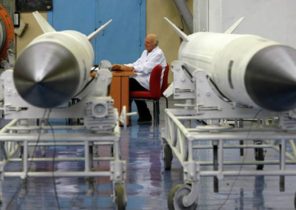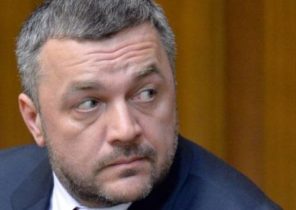According to the data for the first four months of this year, 62.6 percent of the trade turnover with countries outside the Eurasian economic Union made products, classified the Russia-led bloc as mineral products. Another 9% were in metals and metal products. Food and agricultural goods accounted for relatively little of 7.2%. Russia has provided four-fifths of the total exports of the Union.
Compared to the same period in 2019 export revenues EAEC decreased by 17.7% to 126.5 billion dollars. Imports, which mainly consisted of equipment and vehicles (41.8%) and chemical products (18.8 per cent), fell not so much by 5.9% to RUB 77.3 billion. Most affected Russian and Belarusian exports, while the export performance of Kazakhstan and Kyrgyzstan have remained virtually unchanged.
Trade with non-EAEC States could also suffer because of the imposed unit 12 APR temporary ban on the export of food products such as flour, rice, various grains, onions, garlic and turnips. But, to the relief of producers of agricultural products that deal with third countries, the restraining order expired June 30 and was not renewed.
This is likely to be Uzbekistan, covering most of its needs in vegetable oil, soybean and sunflower seed imports from Kazakhstan and Russia.
The situation inside the block is also far from ideal. Continually smoldering disagreements between Kazakhstan and Kyrgyzstan has adopted in recent months a new turn. The Ministry of economy of Kyrgyzstan on 9 June issued a statement, stating that the actions of Kazakhstan at the common border in violation of the provisions on the free movement of goods inside the EAEU.
“Downtime at the border, according to drivers on entry to the Republic of Kazakhstan ranges from 3 to 4 days”, — the document says. If from March to may 2019 crossed the border almost 86 thousand vehicles for the same period of the current year their number was reduced to 32 thousand, the statement of the Ministry.
Meanwhile, Nur-Sultan claims that Bishkek turns a blind eye to the enormous amount of smuggling from China and the incorrect marking of cargo bound for other member countries of the EAEU, and in this regard, the customs officers were forced to strengthen inspections.
Kazakhstan is taking unilateral action in this direction, developing mechanisms for the exchange of data about what goods it trades with China, including the products arriving via third countries. Preliminary bilateral agreement on this issue was signed in June 2019 and already ratified by the President of Kazakhstan Kassym-Jomart Tokayev. According to officials, this will help to reduce the time required for customs procedures. In Kazakhstan, too, flared up scandals about smuggling on his own borders (how actively the country is struggling with this problem — an open question), but still created the impression that this stone in the garden of Kyrgyzstan. Theoretically, this should reduce the dependence of Kazakhstan from the customs officers coming from Kyrgyzstan questionable data about the cargo.
The EEU, apparently, places on the market China hopes to diversify exports. “Daughter” of state company “Russian Railways” and Chinese company YuXinOu in November formed a joint venture Agroexpress, which will transport Russian foods, such as flour, soybeans, confectionery products and frozen chicken, on high-speed trains-refrigerators in Chongqing. (Part of the poultry meat that enters the sandwiches “of Macchicken” restaurants “McDonalds” in China is imported from Russia). A trade war between the US and China opened new horizons for Russia, whose Ministry of agriculture, in particular, reported last year that the country will increase soybean production by 75% to 7.2 million tons by 2024.
The Eurasian economic Commission, the Executive body of the EEU, said June 22 that “network rail delivery of agricultural products to China can be extended to the whole Eurasian economic Union”. How exactly are you planning to organise such delivery, is unclear, but the flavor possibilities are irresistible.
Constantly arising disputes — not to mention disappointing and did not give answers to the challenges facing the unit issues the session of the Supreme Eurasian economic Council held on 19 may via video conferencing, and feed the doubts of skeptics. But they actively oppose the supporters of the EEU, whose articles in support of the block has morphed into a separate niche. Their arguments are often similar to those advanced by the jury If, research fellow, Institute for emerging market studies Moscow school of management SKOLKOVO, who said in a recent article that the dissolution of the common Eurasian economic space and the restoration of the customs tariff may, in particular, lead to a reduction in GDP of Belarus by 20%. According to Carrera, Kyrgyzstan will have a little easier — its economy will lose 14.2 percent. But he adds that Russia is such a turn of events virtually no impact, as if stressing that the EAEC is an act of generosity of the Russian Federation to other members of the unit.
Meanwhile, younger members of the unit — in other words, all, except Russia, is looking forward to the formation of common markets natural gas and electricity. According to reports, the complex of measures on creation of a single electricity market was approved on June 22, paving the way for the implementation of this initiative not later than the beginning of 2025.
Moreover, producers of wine and sparkling wine in Armenia, Belarus, Kyrgyzstan and Kazakhstan, may get the chance to advertise their products in the Russian media. Now, according to Russian law, this privilege is given only to Russian companies, producing wine from domestic wine materials in Russia, including in Crimea, which Moscow considers part of Russia. In June the state Duma approved in the second reading the law on amendment of the rules of advertising.
So, pour all!







